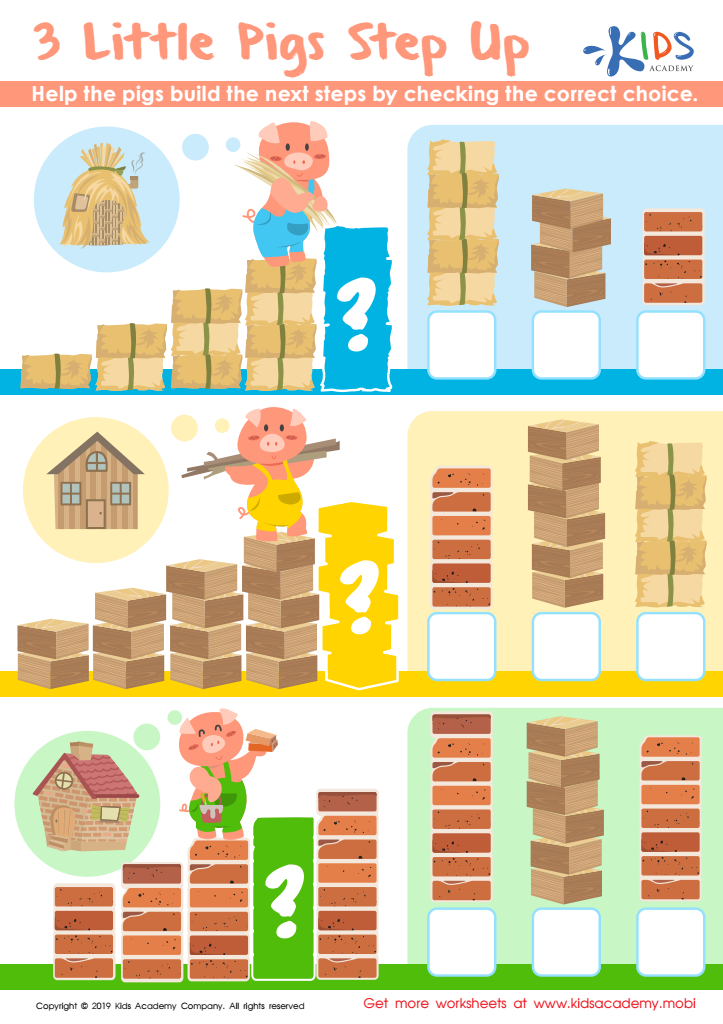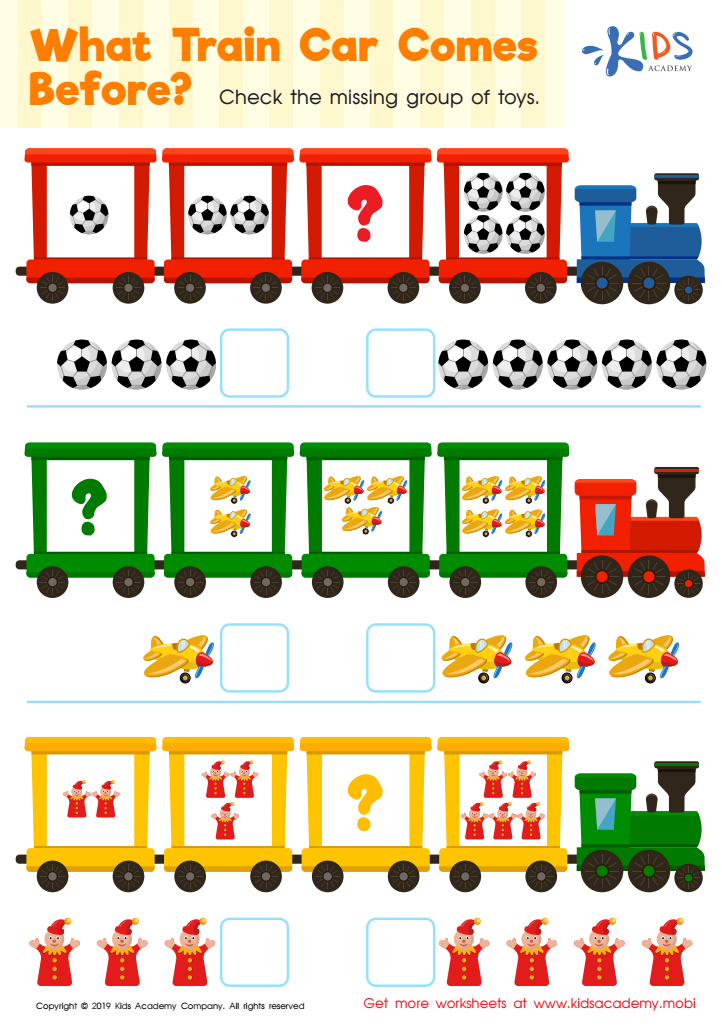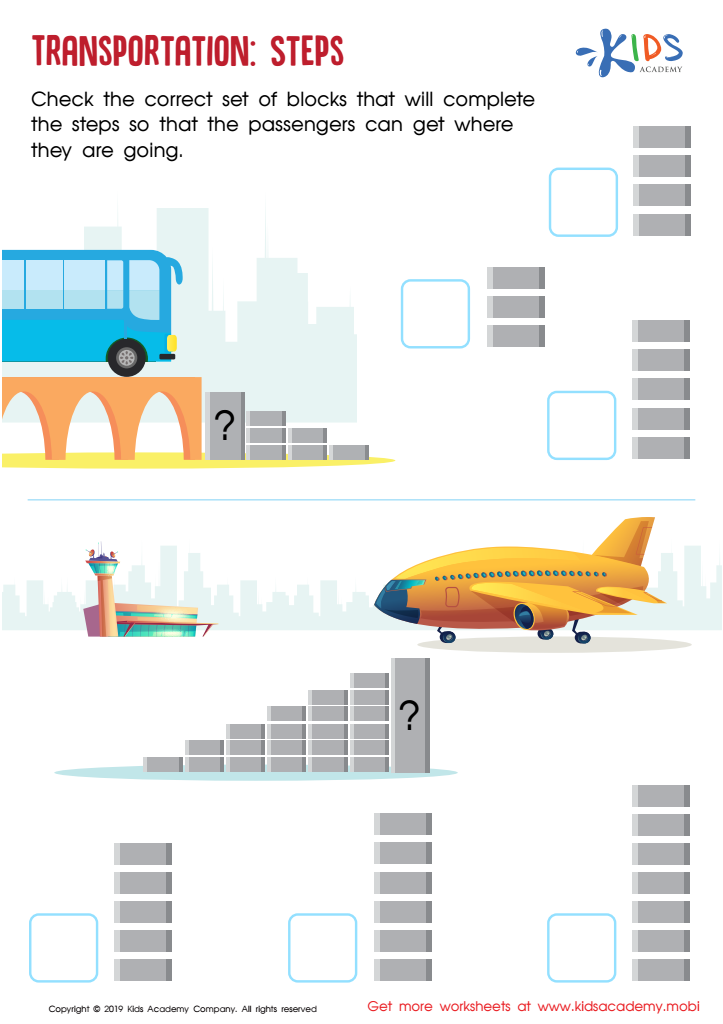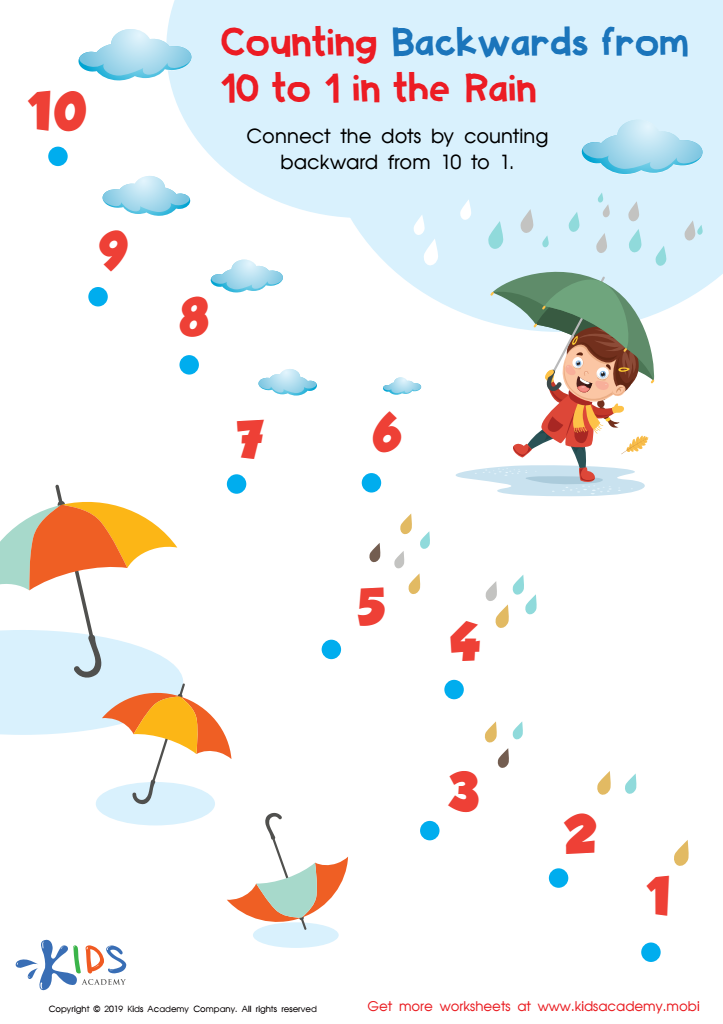Sequencing Skills Easy Math Worksheets for 5-Year-Olds
4 filtered results
-
From - To
Our "Sequencing Skills Easy Math Worksheets for 5-Year-Olds" are designed to help young learners develop essential mathematical sequencing skills through engaging and age-appropriate activities. These worksheets focus on order and progression, helping children understand sequences in numbers, patterns, and everyday situations. Each activity is crafted to build a strong foundation in logical thinking and problem-solving while keeping learning fun. With vibrant illustrations and simple instructions, our worksheets are perfect for nurturing early math abilities, ensuring that children are well-prepared for future educational milestones. Download now to give your child a head start in math with structured, enjoyable practice!


3 Little Pigs Step Up Worksheet


What Train Car Comes Before? Worksheet


Transportation: Steps Worksheet


Counting Backwards from 10 to 1 in the Rain Worksheet
Sequencing skills are fundamental to a child's cognitive development and form the backbone of early learning, including basic math skills. For 5-year-olds, grasping sequencing—an understanding of the order of events or objects—lays the groundwork for future mathematical concepts and problem-solving abilities.
First, sequencing promotes logical thinking by helping children recognize patterns and understand relationships between different concepts. In math, this can translate to comprehending the order of numbers, operations, and eventually more complex procedures. For instance, understanding that 1 comes before 2 and after 0 helps children make sense of numerical order.
Second, these skills enhance a child's ability to follow directions and complete multi-step tasks. This can be essential not only in academic settings but also in everyday activities like getting dressed or following a recipe.
Lastly, sequencing skills can improve reading comprehension. Stories have a beginning, middle, and end, and understanding this structure is crucial for grasping the plot and main ideas. Mastery of sequencing transitions smoothly into better storytelling and writing skills, allowing children to organize their thoughts clearly.
Therefore, focusing on sequencing skills for 5-year-olds equips them with essential tools for academic success and daily functioning, making it a crucial part of early childhood education that parents and teachers should prioritize.
 Assign to My Students
Assign to My Students



















